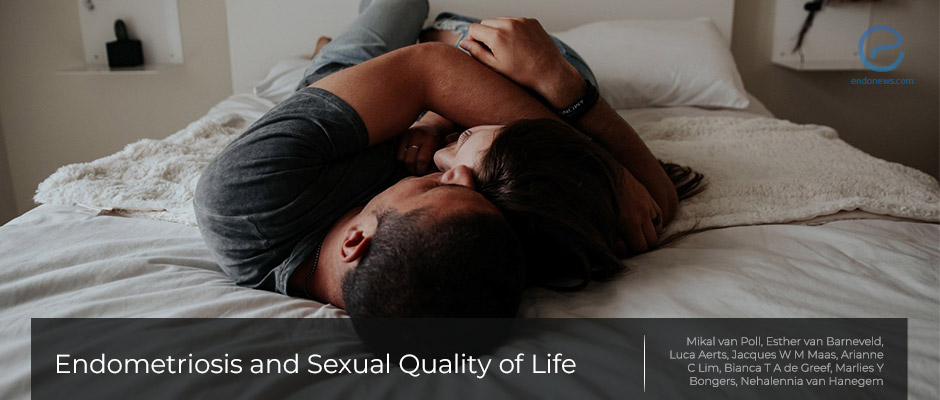Sexual Quality of Life in Women With Endometriosis
Oct 1, 2020
Factors that may have a negative impact on the sexual health of women with endometriosis
Key Points
Highlights:
- Painful intercourse, more severe period pain, worse health-related quality of life, and unemployment are all associated with worse sexual quality of life in women with endometriosis.
Importance:
- Identifying independent factors that may be associated with sexual quality of life can help clinicians better address any issues they encounter when consulting women with endometriosis.
What's done here:
- A literature search to identify characteristics with an effect on the sexual quality of life of women with endometriosis was performed.
- Data obtained from 192 women who responded to the five-item sexual intercourse sub-scale of the modular endometriosis health profile-30 questionnaire (EHP-30) was analyzed.
Key results:
- Painful intercourse, worse health-related quality of life, the severity of period pain, and unemployment were independently associated with worse sexual quality of life.
Limitations:
- Because this was a cross-sectional study, no causative relationship can be established between the factor identified and the sexual quality of life.
- Because, an existing database was used, there was a restricted array of potential patient- and disease-specific characteristics influencing the sexual quality of life, which could be analyzed.
Lay Summary
Painful intercourse, more severe period pain, worse health-related quality of life, and unemployment are all associated with worse sexual quality of life in women with endometriosis. This is according to a Dutch study published in the scientific journal Sexual Medicine.
Being aware of these factors can help clinicians better address any issues related to the sexual quality of life.
The findings of this study also underscore the potential usefulness of the five-item sexual intercourse sub-scale of the endometriosis health profile-30 (EHP-30), a 30-item questionnaire.
Finally, the findings point to the importance of a multidisciplinary approach when treating women with endometriosis including a psycho-sexological intervention for some women with the disease if necessary, even though according to the researchers the effectiveness of this approach as yet to be confirmed.
There are many factors that may have a negative impact on the sexual health of women with endometriosis, painful intercourse being at the top of the list. But there may be other factors too.
The aim of this study was to explore patient- and disease-specific characteristics that could be independently associated with sexual quality of life.
In order to do this, the researchers carried out a literature search and identified 192 women with endometriosis who had completed a health-related quality of life survey between 2013 and 2018. All the women were recently diagnosed with endometriosis or referred with a clinical diagnosis of endometriosis. Their mean age was 36 years and most of them had had intercourse in the period before completing the survey.
The analysis of the women's answers to the five-item sexual intercourse sub-scale scores of EHP-30 revealed 29 characteristics potentially associated with sexual quality of life. Of these, painful intercourse, worse health-related quality of life, the severity of period pain, and unemployment were all independently associated with worse sexual quality of life.
“Our recommendation for clinicians is to be aware of these characteristics in endometriosis patients in relation to the possible decreased sexual quality of life”, the researchers wrote. They added: “a multidisciplinary approach of endometriosis treatment involving psycho-sexological intervention might be especially helpful in women with dyspareunia and impaired sexual quality of life”.
Research Source: https://pubmed.ncbi.nlm.nih.gov/32712127/
sexual quality of life painful intercourse period pain health related quality of life dysmenorrhea dyspareunia

